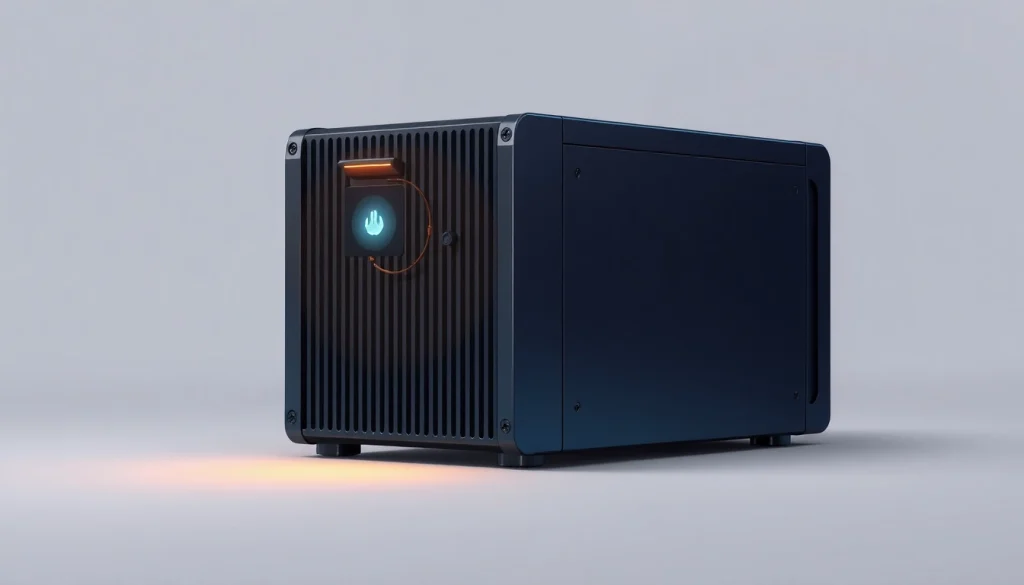Key Insights into Leading Power Supply Manufacturers for High-Performance Systems

The Importance of Choosing a Reliable Power Supply Manufacturer
In today’s technology-driven world, the importance of selecting a reliable power supply manufacturer cannot be overstated. The power supply unit (PSU) is often viewed as a secondary component, but it plays a pivotal role in the overall performance and longevity of any computer system. Reliability in power supply performance ensures stable operations and protects the valuable hardware components of a PC. The reliability of a power supply is directly linked to the reputation and quality standards maintained by its manufacturer. Choosing a Power Supply Manufacturer with a solid track record can be the key differentiator in ensuring a seamlessly functioning, high-performance system.
Why Quality Matters in Power Supply
Quality in power supplies manifests through a combination of durable components, efficient design, and adept thermal management. A PSU that meets high-quality standards will not only provide adequate power but do so with high efficiency, minimizing energy waste and heat generation.
High-quality PSUs typically feature better capacitors, which enhance their durability and performance. They are built to handle surges and provide clean power, which is crucial for sensitive components like graphics cards and CPUs. The implications of using a low-quality power supply can be severe, potentially leading to hardware failure or instability during high-demand scenarios.
Common Issues with Low-Quality Power Supplies
Low-quality power supplies often come riddled with drawbacks that can significantly degrade system performance. Common issues include:
- Inconsistent Power Delivery: A substandard PSU might not deliver the required voltage or current consistently, which can lead to random reboots or system crashes.
- Noise and Heat Generation: Poor thermal design leads to excess heat and noise, as fans work overtime to cool down the unit. This can affect not just the PSU but also adjacent components.
- Inadequate Protection Features: High-quality PSUs come equipped with protection against surges, overcurrent, and short circuits. Low-quality units often lack these safeguards, putting the entire system at risk.
How Brands Influence User Experience
The brand of the power supply manufacturer can greatly impact user experience due to their reputation for quality, customer service, and warranty support. Established brands like Corsair and Seasonic are often recommended for their reliability and customer satisfaction, influencing purchasing decisions. Manufacturers with a strong emphasis on research and development tend to deliver innovative features that enhance performance and efficiency, further impacting the user experience positively.
Top Power Supply Manufacturers in the Market
A Detailed Look at Industry Leaders
In the burgeoning market of power supply units, several manufacturers stand out due to their innovation, product range, and performance metrics. Among the leaders are:
- Corsair: Known for its robust lineup of PSUs that cater to gamers and professionals alike, with models equipped with modular cables that facilitate cable management and airflow.
- Seasonic: Renowned for its high-efficiency units, Seasonic PSUs are often at the top of the market for their reliability and quiet operation.
- EVGA: Popular among gamers, EVGA offers power supplies that feature excellent warranties and solid performance metrics, particularly in high-load scenarios.
Emerging Brands to Watch
New entrants in the power supply market are starting to carve out their niche, focusing on innovative designs and user-specific needs. Brands like FSP Group and Cooler Master are gaining traction due to their affordable yet performant offerings that cater to budget-conscious consumers without sacrificing quality.
Comparing Features and Specifications
When choosing a power supply, various features such as wattage, efficiency ratings (80 PLUS certification), modularity (fully, semi, or non-modular), and form factor (ATX, SFX) come into play. For instance, higher wattage PSUs are suitable for multi-GPU setups or systems with high power draw, while the 80 PLUS Platinum rating indicates superior efficiency and lower energy costs over time. Modular designs can enhance cable management, promoting better airflow and aesthetics within the build.
Understanding Power Supply Ratings and Certifications
What Do 80 PLUS Ratings Mean?
The 80 PLUS certification is a performance certification that promotes energy efficiency in power supplies. It guarantees that at least 80% of the power drawn from the wall outlet is converted to usable power for the components, with additional tiers (Bronze, Silver, Gold, Platinum, and Titanium) indicating higher efficiency levels. For example, Titanium-rated units boast over 94% efficiency at 50% load, reducing electricity consumption and heat output, which is vital for high-performance machines.
ISOs and Other Quality Standards
Additionally, ISO certifications like ISO 9001 assure consumers of the manufacturer’s commitment to quality management processes. These standards are particularly relevant in industrial settings where reliability is crucial. Manufacturers often leverage these certifications to build trust and validate their engineering processes in design, production, and service delivery.
Importance of Certification by Trusted Agencies
Having products certified by recognized agencies indicates that the power supplies have undergone rigorous testing and meet specific safety and performance criteria. This is essential for consumer confidence, particularly in high-stakes environments where power instability can lead to costly downtime or equipment damage.
Best Practices for Selecting a Power Supply
Assessing Power Needs for Your System
Before choosing a power supply, meticulously assess the power requirements of your entire system. Consider all components, including the CPU, GPU, cooling fans, and peripherals, as they contribute to the total wattage needed. Using online wattage calculators can help determine the appropriate PSU size, ensuring that the selected unit can handle peak demand without running the risk of under-powering your system.
Compatibility with Other Hardware
Compatibility is another critical factor. Ensure that the chosen PSU fits in the designated case and adheres to the relevant specifications. Additionally, check for the necessary cables required for your hardware components. Some modern GPUs might require specific connectors, making it imperative to ensure the PSU supports these needs.
Reading Reviews and User Feedback
One of the best ways to understand a product’s real-world performance is to read reviews and feedback from other users. Look for detailed performance reviews conducted by reputable tech platforms and user comments on forums. Consider pros and cons, particularly regarding stability, effectiveness, and customer service experiences associated with specific manufacturers. This research can provide valuable insights that are often not reflected in marketing materials.
Future Trends in Power Supply Manufacturing
Innovations in Power Efficiency
The push for increased energy efficiency leads to continuous innovations in PSU manufacturing. Future trends will likely focus on hybrid technologies that utilize alternatives, like solar energy, alongside the traditional power supply sources. This would not only enhance green initiatives but also cut operational costs over time.
Smart Power Supply Devices and Features
As technology advances, so too does the incorporation of smart features in power supplies. Smart PSUs can communicate with the system to optimize power delivery based on usage patterns and performances, thus enhancing energy efficiency. Features such as real-time monitoring, adjustable power settings, and analytics on power consumption may become common in high-performance systems.
The Role of Sustainability in Manufacturing
Consumer awareness around environmental factors is paving the way for more sustainable manufacturing processes in the power supply industry. Manufacturers are increasingly using recyclable materials and energy-efficient production methods to create products that minimize environmental impact. Sustainability considerations are not only beneficial for the planet but can also appeal to eco-conscious consumers when making purchasing decisions.





